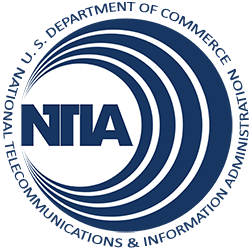Broadband’s ability to expand educational and employment opportunities is especially meaningful for Americans who are deaf or hard of hearing, a community that faces unique challenges in education and that suffers from a rate of unemployment much higher than the national average. Communication Service for the Deaf, Inc. (CSD) intends to expand broadband adoption among people who are deaf and hard of hearing and provide them with online tools to more fully participate in the digital economy. The project proposes to employ a combination of discounted broadband service and specialized computers, technology training from an online state-of-the art support center customized to the community’s needs, public access to videophones at anchor institutions from coast to coast, and a nationwide outreach initiative. Thousands will gain online access to all the Internet has to offer, including sign language interpreters, captioned video services, and other content and functionalities designed especially to advance their educational, employment, and healthcare interests.
New Hampshire

| Grantee | Total Award | Type |
|---|---|---|
| Communication Service for the Deaf, Inc. | $14,988,657 | Sustainable Adoption |
| University Corporation for Advanced Internet Development | $62,540,162 | Infrastructure |
| University of New Hampshire | $6,113,338 | Broadband Data & Development |
| University System of New Hampshire | $44,480,992 | Infrastructure |
| Vermont Telephone Company | $12,256,492 | Infrastructure |
As part of a longstanding project to connect essential community anchor institutions across the country, and facilitate closer collaboration and long-term benefits for education, research, healthcare, public safety, and government services, the University Corporation for Advanced Internet Development (UCAID) proposes a comprehensive 50-state network benefitting approximately 121,000 community anchors. The project proposes a large-scale, public-private partnership to interconnect more than 30 existing research and education networks, creating a dedicated 100-200 Gbps nationwide fiber backbone with 3.2 terabits per second (TBps) total capacity that would enable advanced networking features such as IPv6 and video multicasting. The project plans to connect community anchors across all disciplines into virtual communities with shared goals and objectives, including colleges, universities, libraries, major veterans and other health care facilities, and public safety entities, with additional benefits to tribes, vulnerable populations, and government entities.
Project Components
State Broadband Capacity Building:
With this funding, the state director of broadband technology and associated staff will partner with the New Hampshire Community Development Finance Authority (CDFA) to develop a demand stimulation and aggregation program that mobilizes key stakeholders to make in‐kind and financial commitments to increase broadband penetration on a targeted community‐by‐community basis. The program will assemble a resource panel and create a broadband sustainability fund to assist with financing for areas that need service.
Technical Assistance:
This funding will support the partnership of the New Hampshire Broadband Mapping Program with the University of New Hampshire (UNH) Cooperative Extension, the UNH Information Technology Office, the Granite State Distance Learning Network and the State Office of Energy and Planning. This collaborative will conduct a survey that seeks to assess the functional needs of the educational, non-profit, local government and business sectors in the state. Once the needs of each sector have been identified, technical specialists will provide leadership from each sector with information and training about the opportunities available to them and the various software and applications that could meet the needs they identified in the survey. The project team proposes to work directly through the New Hampshire Municipal Association, New Hampshire Business and Industry Association, New Hampshire Department of Education and New Hampshire Center for Non-Profits to reach the individual organizations targeted.
Local Regional Planning Teams:
This funding will support an expanded level of activity within New Hampshire’s existing regional planning commissions, allowing them to create and augment specific plans for broadband deployment and adoption, and to integrate those plans into existing regional blueprints. The New Hampshire Office of Energy and Planning, which works with each regional commission, will receive funding to coordinate activities and share leading practices across the project teams.
Data Collection, Integration, and Validation:
This project was originally funded for broadband planning activities and two years of data collection. In September of 2010, this project was amended to extend data collection activities for an additional three years and to identify and implement best practices.
Address File Development:
The New Hampshire Broadband Mapping Program proposes an innovative strategy that leverages relationships between UNH, Regional Planning Commissions, local/state agencies and community volunteers to develop the first public master address file for the state.
Network New Hampshire Now (NNHN), spearheaded by the University System of New Hampshire, is a collaboration between state and local governments, non-profits, and private entities to bring a mix of wireline and wireless next-generation broadband services to community anchor institutions in all ten counties of New Hampshire, and to make broadband service more readily available to the state’s households and businesses. NNHN plans to provide enhanced broadband services and speeds of up to 10 Gbps directly to approximately 200 community anchor institutions, including K-12 schools, libraries, higher education institutions, public safety agencies, and health care facilities.
The VT BELL project is VTEL’s plan to address a bandwidth and transport capacity shortage in the state’s existing middle mile infrastructure in areas including Essex, Stowe, New Haven, and Berlin. Because this shortage has slowed the deployment of crucial resources necessary to promote long term educational and economic initiatives, such as distance learning networks, access to Internet2, and remote access to large databases and libraries, VT BELL proposes expanding VTel's existing fiber network to deliver up to 10 Gbps Ethernet broadband to more than 200 high schools; hospitals; colleges; universities; community colleges; rural, independent and large telephone companies; and public safety entities, including police barracks, statewide. The project also proposes to build the high speed network to Vermont's three highest peaks to enhance the Department of Public Safety's statewide microwave network for improved emergency communications in mountainous areas.
